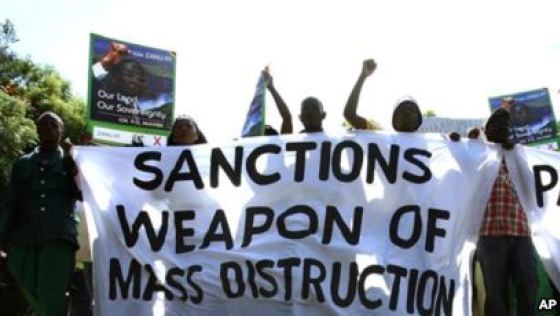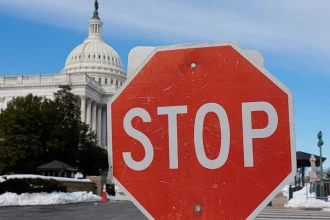Thousands of Zimbabweans are expected to take part in a protest march on Friday to call for an end to sanctions imposed by the United States and European Union, which the government blames for the country’s economic problems.
The authorities have declared today a public holiday and hundreds of buses have been dispatched across 10 provinces to bring people to the march in the capital, Harare.
US sanctions were imposed in 2002 over alleged human rights abuses in Zimbabwe and seizures of white-owned farms. Hundreds of officials were targeted, including President Emmerson Mnangagwa.
The Zimbabwean government says the sanctions have cost the country billions of dollars in lost revenue as it battles shortages of basic supplies such as fuel, power and water.
The march is scheduled to start at 07:00 local time (05:00 GMT), according to the state-owned The Herald newspaper.
People have been discouraged from wearing partisan political regalia at the event which will also include speeches by government officials.
Similar marches will also be held in major towns across the country where speeches will be delivered by top businessmen, civil society organisations, students, and freedom fighters, the newspaper reports.
In August, regional bloc Southern African Development Community (Sadc), composed of 16 southern African countries, called on the US and EU to “immediately lift” the sanctions.
The leaders said they will collectively voice their disapproval of sanctions against Zimbabwe through various platforms on 25 October, according to Sadc executive secretary Dr Stergomena Tax.
Dr Tax reiterated the position on Thursday with a poster on Twitter that had the portraits of seven regional heads of states:
One day to 25th October pic.twitter.com/sCWtx92I9A
— Dr. Stergomena Lawrence Tax (@DrTaxs) October 24, 2019
The US and the EU have both maintained sanctions, citing a lack of progress in democratic and human rights reforms as well as restrictions on press freedoms.
Originally imposed during the era of former President Robert Mugabe, these sanctions were reviewed earlier this year and have been extended until February 2020. They target both specific individuals and companies.
US financial and travel restrictions currently apply to 85 individuals. There are also 56 companies or organisations facing restrictions.
“We have sanctions against certain individuals and certain corporations… not against the country of Zimbabwe. There is nothing to stop US businesses from investing in Zimbabwe, from going to Zimbabwe,” US Assistant Secretary of State on African Affairs Tibor Nagy has previously said.
















